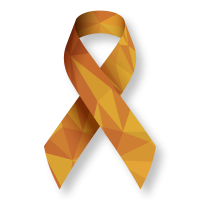If you have been through cancer, it is very normal to feel worried about your cancer coming back. It can take a long time to adjust to the experience you have just been through, and feelings of fear may reappear - sometimes quite unexpectedly - for quite a long time after your experience.
Finding ways to accept and manage any uncomfortable emotions that come up can help you process all you have been through, and feel more in control.
In this article we’ll talk about what cancer recurrence is, and how it is monitored. We’ll also introduce some of the ways that could be useful to help you accept and manage any fear you might have around cancer recurrence.
What is cancer recurrence
Cancer recurrence is when cancer is found again after treatment. This might be immediately after treatment has finished, or it can be after a period of time where no cancer has been detected. Recurrent cancer may come back near to where it originally began, or somewhere else in the body. It can be classified depending on where it recurs:1
- Local recurrence: Local recurrence is when cancer recurs in the original place it began.
- Regional recurrence: Regional recurrence is when cancer recurs in the lymph nodes nearby the original place it began.
- Distant recurrence: Distance recurrence is when cancer recurs in a different part of the body from where it began, such as the brain, bones, liver, or lungs.

Why does cancer recurrence happen?
Cancer recurrence can happen if the original treatment is unfortunately not able to clear all of the cancer cells from your body.2 These cells may eventually grow into a detectable tumor.
Some factors which may influence risk of bladder cancer recurrence include:
- The type and stage of the original cancer
- Treatment success
- Age
- Smoking history
- Some lifestyle factors, such as diet and exercise
However, everybody’s situation is different, and these risk factors do not necessarily indicate that an individual will experience recurrence. It is sometimes very hard for doctors to predict if, or when, cancer will recur. This unpredictability and lack of control is one reason why it can be difficult managing fears of cancer coming back after treatment.
How is cancer recurrence monitored?
Regular follow-up appointments with your oncologist or medical provider are essential to help monitor for cancer recurrence. During these follow-up appointments your medical provider will assess your health for any signs or symptoms of cancer recurrence.
With bladder cancer, common symptoms of recurrence can include pain or blood with urination. It is important to tell your medical provider about any worries or new symptoms like this that you may have.
Some investigative tests such as cystoscopy may also be carried out as part of routine follow-up monitoring. These tests can help to detect any new cancer cells at a very early stage. They can also provide reassurance that bladder cancer has not come back.
Non-invasive genomic urine tests like Cxbladder Monitor can also be used as part of a patient’s follow-up surveillance plan to help rule out bladder cancer recurrence. In suitable patients, these tests can be used in combination with cystoscopy on an alternating schedule, helping to reduce the frequency of cystoscopy required.
Living with the possibility of cancer recurrence
Living with a possibility of cancer coming back can be difficult. Here are some things you can do to help manage your fears and feel more in control of what you can, while letting go of the things you cannot control.
Get to know your fears
Fear can be a challenging feeling to experience, but is just a normal emotion that has something to tell you. Try to practice noticing when you feel fear and anxiety without judgement. Get to know the times and places that your fears are more likely to be triggered. This way you can begin to understand what your feelings are trying to tell you, and learn to give yourself what you need when they come.
You have been through a lot, and it is very natural to have feelings of fear and anxiety about cancer recurrence. You may notice increased feelings before or after certain scans, tests, or appointments. Or, you may find certain symptoms like headaches or a cough trigger those emotions in you.
Tolerating these feelings can be very difficult or even impossible when they are overwhelming. But suppressing feelings or criticizing yourself for feeling them can heighten your fear and anxiety. Even if you don't know why you feel a certain way, you can learn to give yourself comfort as you go through them. Each time a feeling comes, know that it will pass.
Talking, writing, and movement such as walking or yoga can help you to process and make sense of your feelings. Counseling and therapy can also help you to learn your triggers and work through your feelings.
Take care of your overall health
If you are recovering after cancer, it’s likely you have been through a tough challenge. You need nurturing!
The World Cancer Research Fund International (WCRF) recommends exercise and a healthy diet, as good practices for cancer prevention and taking care of your overall health3. Research also shows that looking after your health through exercise can help to improve both physical and mental wellbeing after a cancer diagnosis.
So if you feel like making changes, you could start as small as swapping white bread for wholegrain, or doing 10 minutes of stretching with a video online a day. Find the little things that you can fit into your day, and that make you feel good. If it starts becoming a chore, or is stressing you out, it’s not the right thing for you, right now.
Find ways to de-stress
Relaxing is an important part of looking after your health and building resilience to the challenges of recovery from cancer. Again, little and often can be a good start. Relaxing activities you like may be as small as having a good laugh at a favorite TV show, a long bath before bed, connecting with someone, or just briefly stepping outdoors for a breath of air and to hear the birds.
Practice living in the moment
Emotions like fear and anxiety tend to take our focus off the present moment and place it far into a future that may or may not occur. To combat this tendency, it can sometimes be helpful to practice taking things just one day at a time. When can you live in the moment, it is easier to remember things you can feel grateful for.4 Practicing activities like meditation, yoga, mindfulness, and relaxation breathing techniques can all help you to learn how to find space in the moment of the day.
Lean on your support network
Your support network may consist of friends, family, a sports team, or a cancer support group. Whatever your support network looks like, continue to lean on their support after you've completed cancer treatment.
Cancer support groups, in particular, are an excellent resource for individuals in any stage of cancer recovery or treatment. When you join a cancer support group, you'll have the opportunity to share with and learn from others who are going through similar life experiences and can understand any fearful emotions you have related to cancer recurrence.
As you share your experiences with your group, you can hear about their experiences and gain practical insight and helpful resources for how to manage your fear of cancer. The insight of others who have faced similar challenges and fears can help you understand what you are going through, and find ways of coping.

Think before researching online
Before diving into online research, think about what you want to know. Remember that statistics and recurrence rates are at best general, and not tailored for each individual. You may find you prefer to speak with your doctor or health care provider to find out what you need to know.
Or you may still prefer to research online, and find out all of the facts in your own time. If so, try to ensure the information comes from a reliable resource. You can also speak with your doctor about any research you find online. They can expertly interpret the information and help to give you context.
Comply with cancer monitoring
Attending follow-up appointments and taking part in monitoring for recurrence is important, and one way that you can help feel more proactive. You can use this time to tell your doctors about anything that is worrying you, ask for advice, or talk about any signs or symptoms you may have.
Having regular follow-up appointments can help to provide reassurance that you are on the right track, and that any problems that may arise will be detected early on.

When to seek further help
At times, you may find that your feelings of fear and anxiety are beyond your ability to control. In these situations, you may find that help from a medical professional is necessary to cope with your fear of cancer recurrence, and that is okay. Various medical and health care professionals are trained in helping people who experience overwhelming fear of cancer recurrence.
It's a good idea to consider seeking out medical or health care assistance in dealing with the fear of cancer recurrence if you experience any of the following:
- Constantly looking for new signs or symptoms of cancer recurrence.
- Frequently seeking reassurance that your cancer hasn't returned with only short intervals before your anxiety returns.
- Consistent feelings of hopelessness, apathy, or that you lack anything to look forward to.
- Losing sleep or your appetite due to your fear or anxiety.
- Loss of interest in activities you usually enjoy.
- Disabling fear related to follow-up appointments or tests.
Extreme anxiety can significantly harm your quality of life, so lean on professional support if you experience it. Another reason it's a good idea to seek further help is so you can continue to comply with monitoring in a healthy way. If you feel anxiety related to monitoring and tests, it can help to have quick, easy-to-use, and non-invasive alternatives. Cxbladder's urine-based laboratory test is a reliable alternative to more invasive bladder cancer recurrence monitoring tests.
Cxbladder is a non-invasive surveillance alternative
Cxbladder Monitor is a reliable and non-invasive surveillance alternative designed to rule out the return of bladder cancer. A genomic urine test that analyzes five biomarker genes to provide accurate results with a single urine sample, Cxbladder can reduce the need for frequent cystoscopies which can be both uncomfortable and inconvenient.
Learn more about Cxbladder Contact us for more information
References
- https://www.cancer.org/treatment/survivorship-during-and-after-treatment/long-term-health-concerns/recurrence/what-is-cancer-recurrence.html
- https://www.cancer.gov/types/recurrent-cancer
- https://www.wcrf.org/diet-activity-and-cancer/cancer-prevention-recommendations/eat-wholegrains-vegetables-fruit-and-beans/
- https://www.cdc.gov/howrightnow/gratitude/index.html
Additional sources
- https://www.cancer.net/survivorship/life-after-cancer/coping-with-fear-recurrence
- https://www.cancercenter.com/cancer-recurrence
- https://www.maggies.org/cancer-support/managing-emotions/fear-cancer-returning/
- https://bladdercancer.net/coping/recurrence-second-cancer
- https://www.mskcc.org/news/how-stop-fear-cancer-its-tracks
- https://www.cancer.net/survivorship/follow-care-after-cancer-treatment/importance-follow-care
- https://www.cancer.net/cancer-types/breast-cancer/follow-care-and-monitoring
- https://share.upmc.com/2017/11/warning-signs-cancer-recurrence-survivors/






